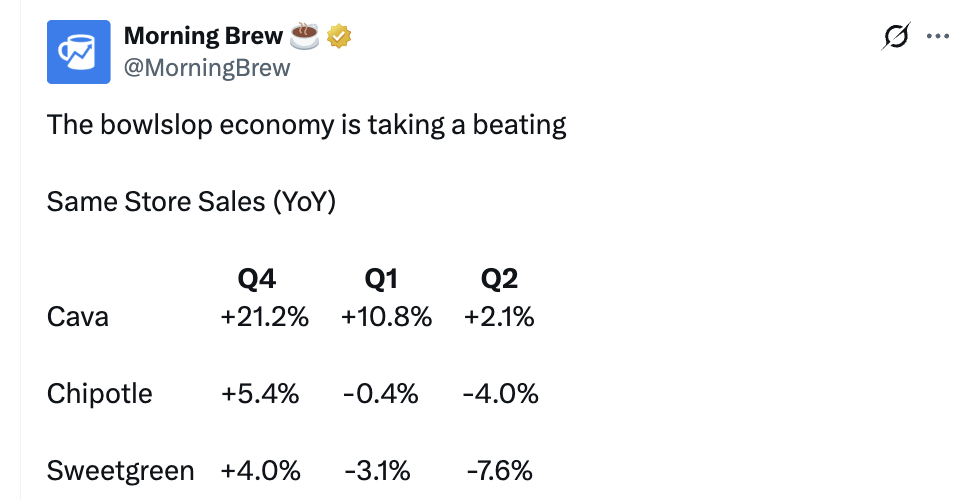
“The Bowlslop Economy”

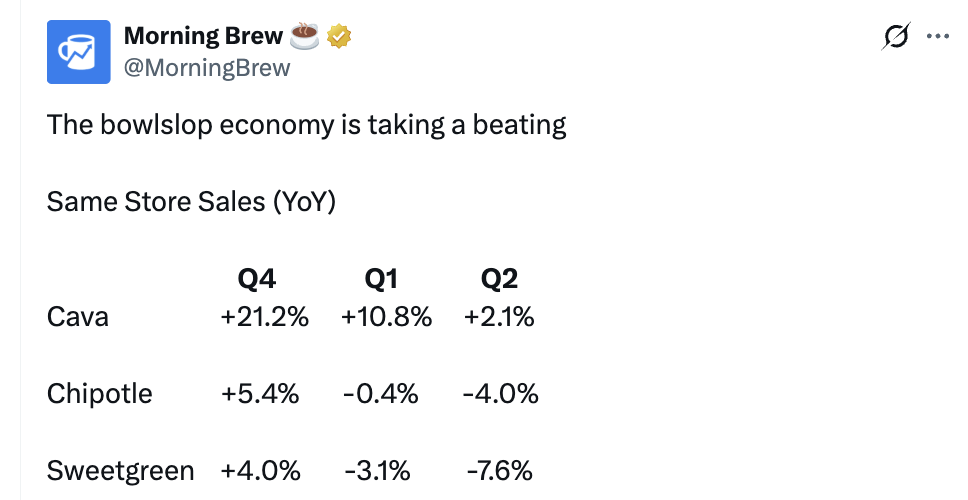
Welcome to Wednesday, futurists.
While inflation ticked up in July and the "bowlslop economy" takes a beating—with Cava, Chipotle, and Sweetgreen all posting declining same-store sales—brands are discovering that controversy might be cheaper than advertising.
This week's retail sales rose a meager 0.5% MoM, coffee prices are surging thanks to Brazilian tariffs, and consumers are tightening their belts.
Meanwhile, a salty drink CEO turned a bad review into a promotional strategy, proving that when traditional marketing budgets shrink, some founders are betting their entire brand on unhinged social media presence.
It's a stark contrast to the polished celebrity brand playbook, where billion-dollar valuations buy you the luxury of professionalism.
Speaking of celebrity brands: we’ve put together a brand new tracker including 29 of the top celeb-founded brands—rated from lukewarm, to cold, to hot mess.
— Phillip

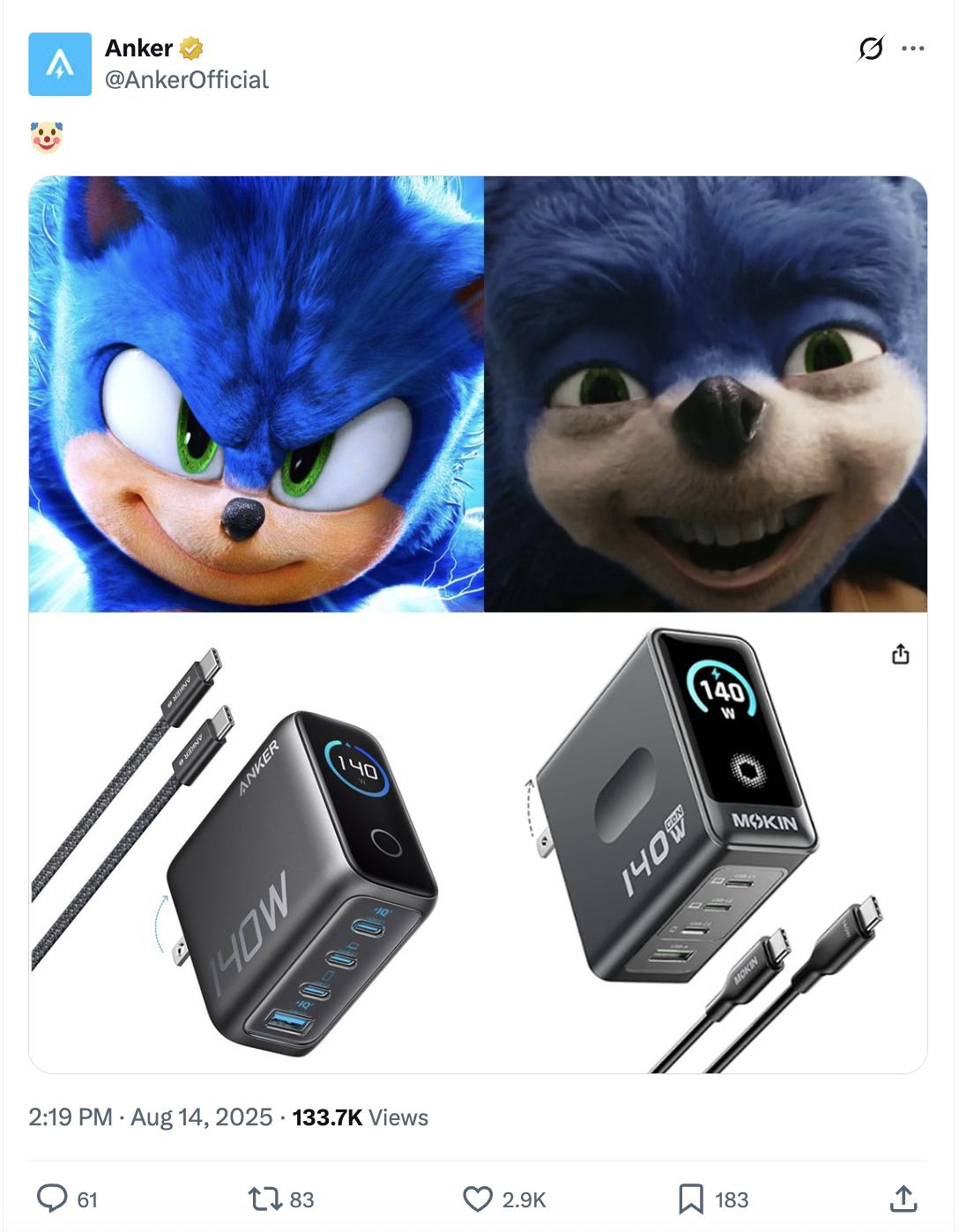
Anker's Masterclass in Meme-Driven Shade. Anker acting playful? Or the last gasp of monoculture brands as we give into the decade of dupe? Anker still believes in the power of brand, and delivered a perfectly crafted visual burn comparing their charging products to competitors using the "Sonic vs. off-brand Sonic" meme format, displaying the nightmare-fuel CGI version from early promotional Sonic the Hedgehog (2020) materials to position their sleek chargers as the "real deal" versus cheaper knockoffs.
The real knockoff? This meme format is ancient.

Dick's Sporting Goods Goes Full Experiential: The retailer is investing $10.2 million to transform its Gaithersburg location into a "House of Sport" concept featuring rock climbing walls, indoor tracks, and simulated driving ranges. The store is now aiming for a January 2026 completion date, with CEO Lauren Hobart noting that "athletes are traveling farther to visit House of Sport, increasing the time they spend in the store and visiting more frequently."
This massive investment in physical retail experiences echoes themes we've explored about the future of brick-and-mortar, where stores must justify their existence through experiences impossible to replicate online. DICK'S currently has approximately 20 House of Sport stores and anticipates opening 75 to 100 by 2027, suggesting this isn't a pilot but a fundamental reimagining of sporting goods retail as entertainment destination.

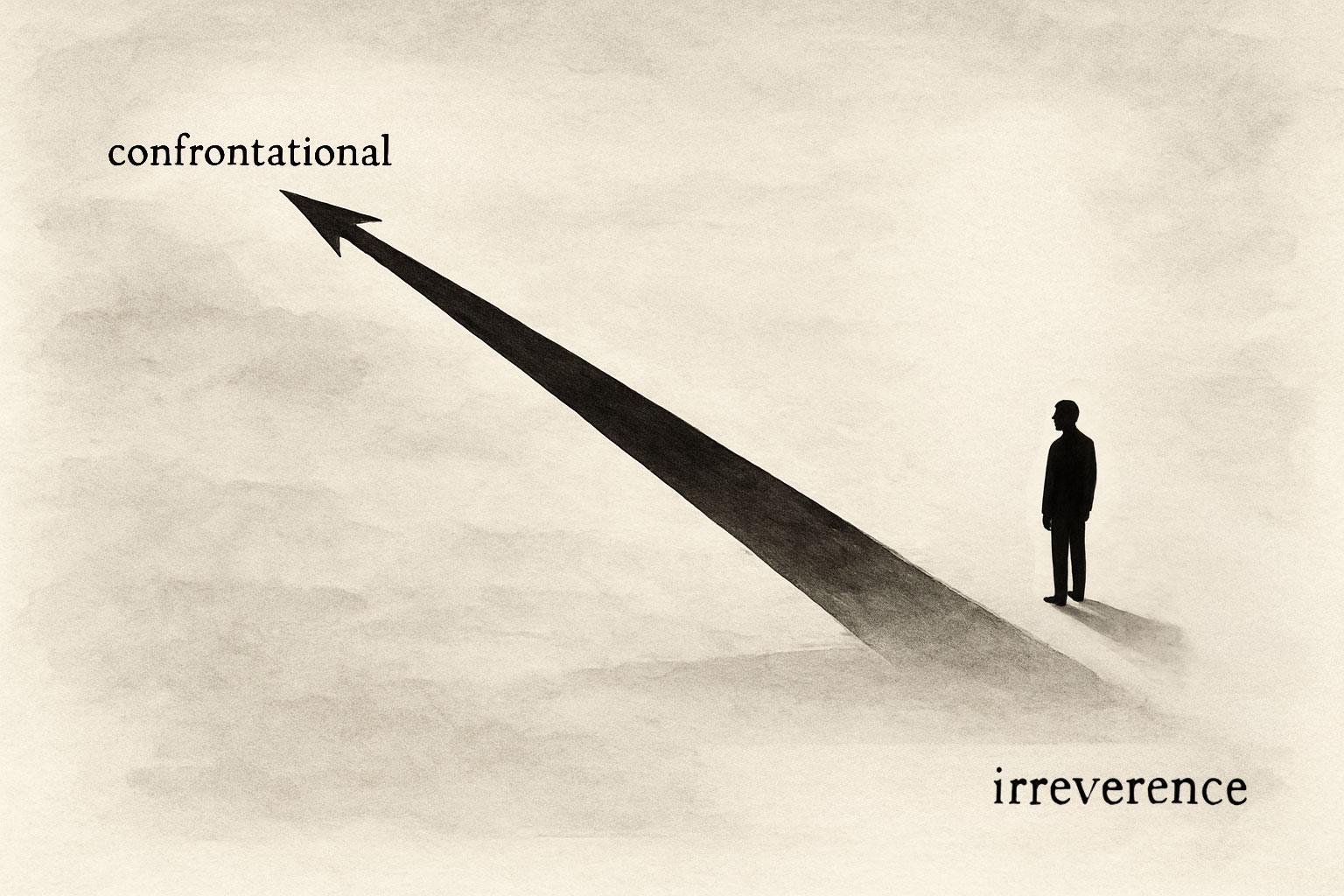
Brands Behaving Badly. Untrademarkable beverage brand Sports Drink's CEO responded to Bon Appétit's unfavorable electrolyte drink review by calling the publication a "stupid bitch" and converting the controversy into a discount code.
The escalation included personal attacks on critics and a 10% off coupon "STUPIDBITCHBONAPPETIT," with the CEO personally claiming a triumph over legacy media in the social media meltdown.
Our Take: This is what happens when brands mistake attention for strategy. While some supporters may have rushed to buy based on the "boldness," Sport Drink have essentially built a marketing strategy around being professionally unhinged. It's the logical endpoint of what we identified in "The Celebration of Insincerity", brands discovering that manufactured outrage converts better than actual product quality.
CEO Andrew Stephen’s reaction makes this particularly fascinating; rather than the typical "rogue intern" defense, they're owning the chaos as brand strategy; and it may hint at the relative size and scale of most CPG beverage brands these days. Brand founders do everything.
This connects to our broader observation about how some brands would rather burn bright in the attention economy than build sustainable customer relationships. The reaction of the crowd to Stephen’s antics no doubt will push the brand into further bad behavior, eliciting a form of audience capture.
An immediate sales bump from controversy addicts proves that negative sentiment can be more commercially valuable than positive reviews, but it raises uncomfortable questions about what kind of business model depends on insults for revenue. Oh, we forgot. In 2025, sadly, it’s almost all of them.

Oracle and Google's Awkward AI Throuple: Oracle and Google Cloud have struck a deal allowing Oracle to resell Google's Gemini AI models, signaling a major shift in enterprise AI distribution strategies. This partnership breaks traditional cloud vendor silos and positions Oracle as an AI middleman rather than developer.








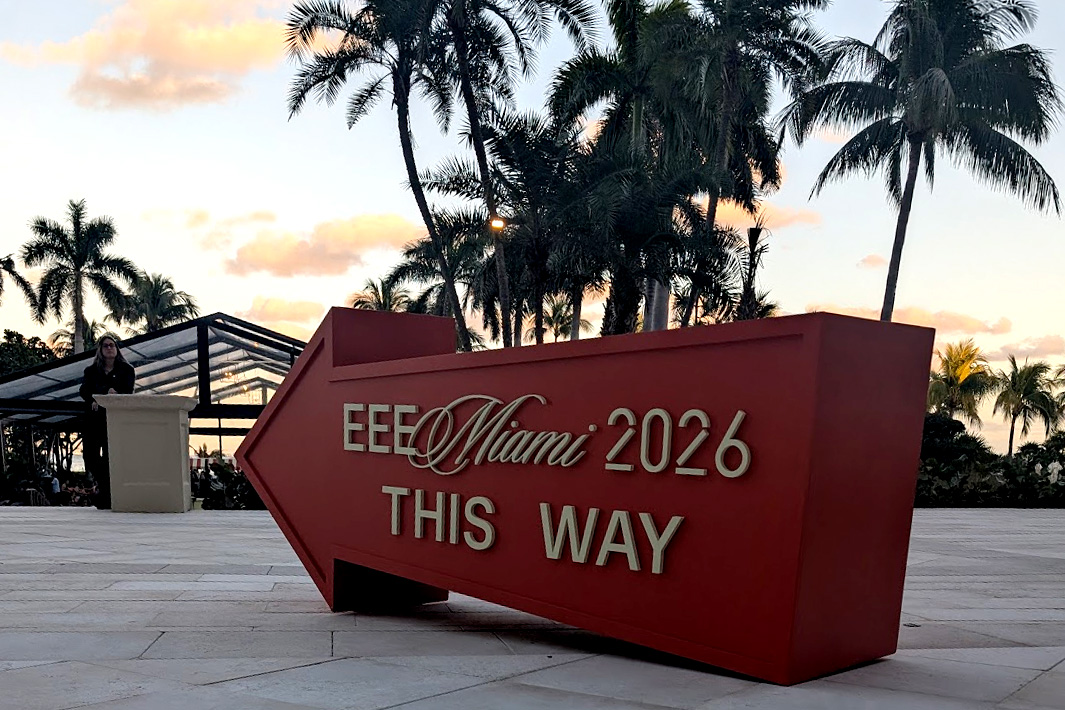
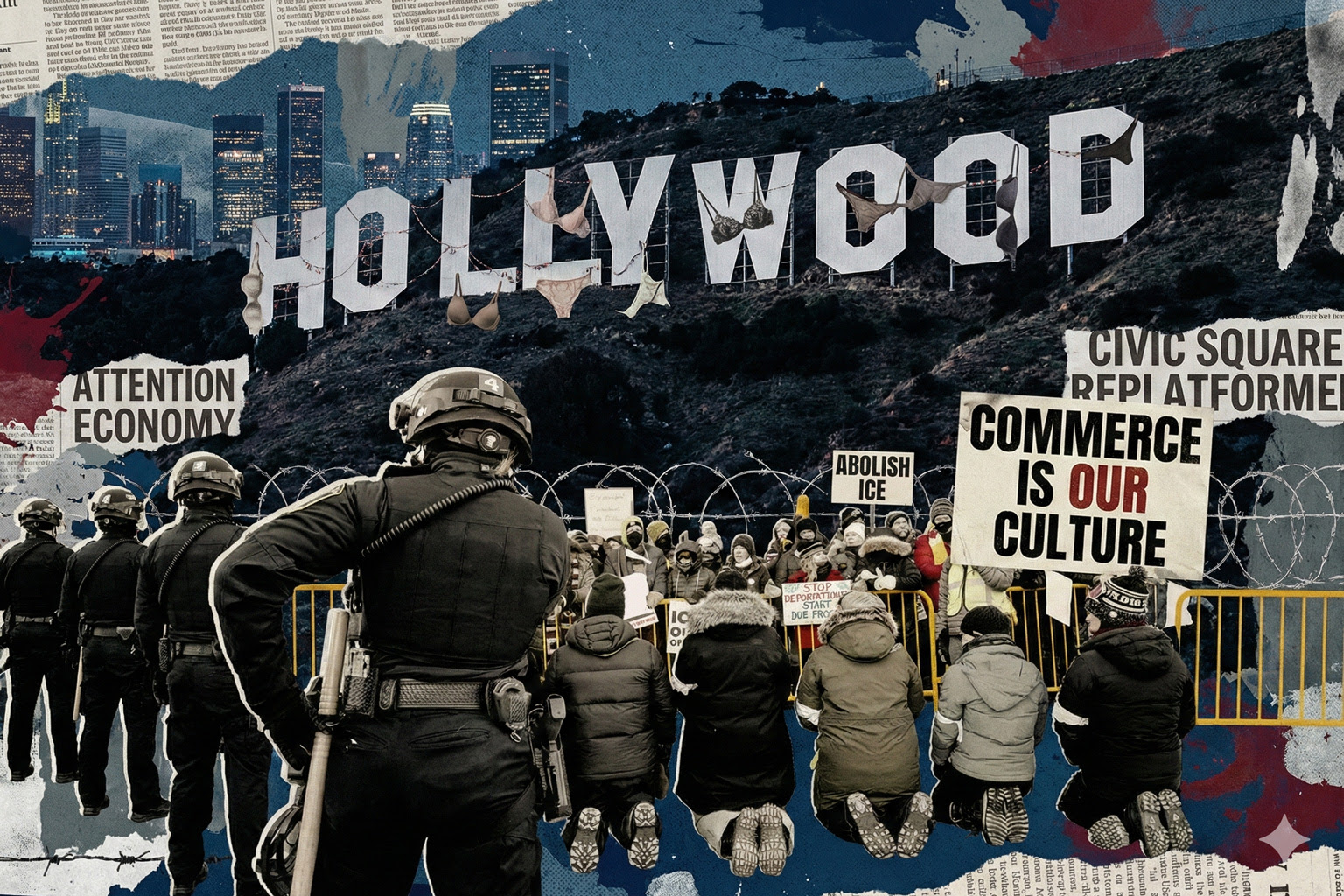
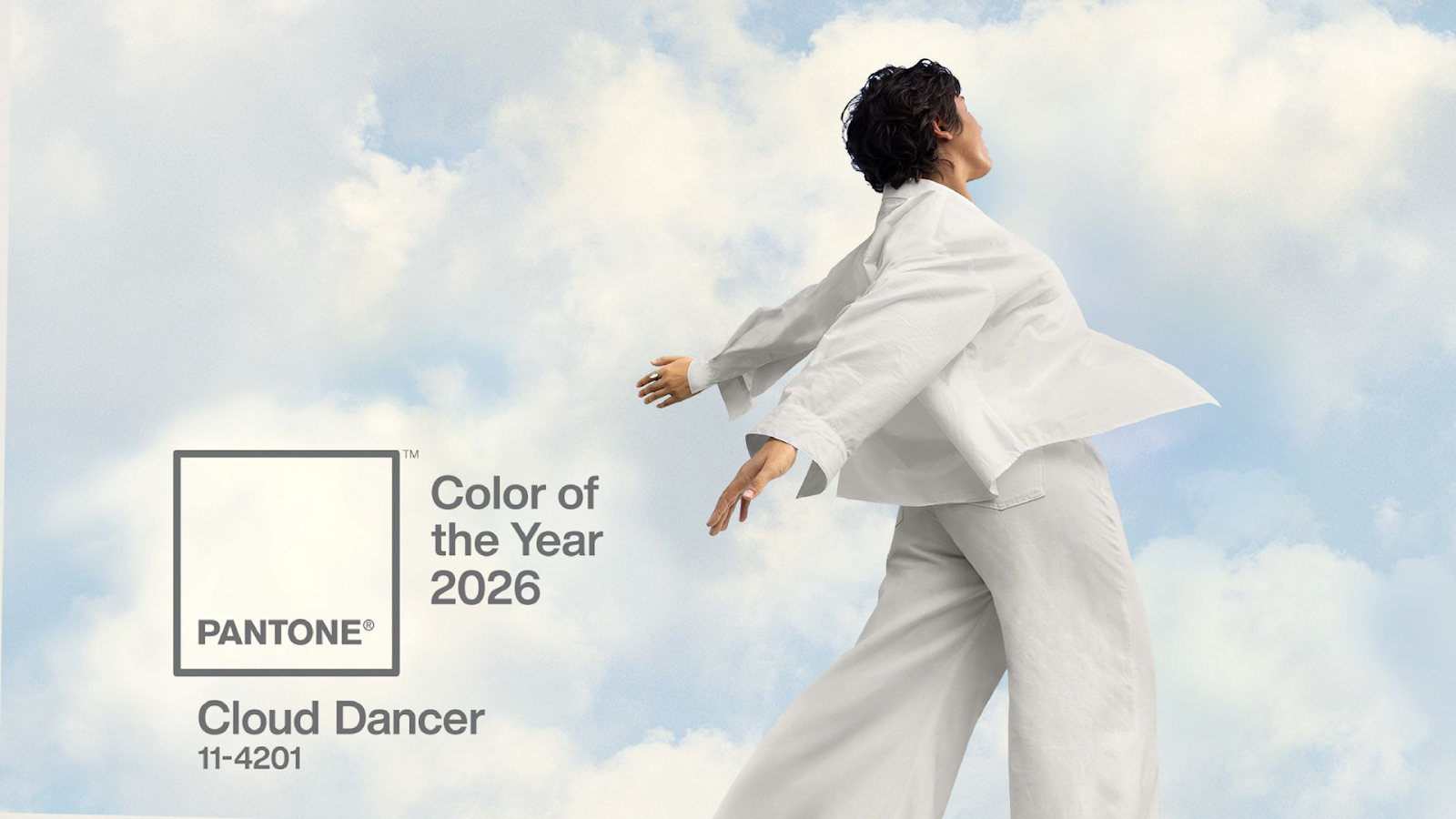
.svg)
